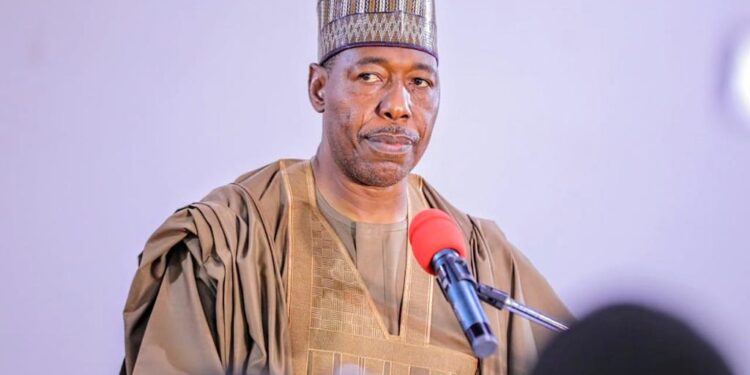Borno State Governor, Babagana Zulum, has expressed concerns about the proposed tax reform bills, arguing that if passed, they would disproportionately benefit Lagos State while harming other regions. Speaking on Politics Today on Channels Television, Zulum clarified that his opposition was not a personal attack on President Bola Tinubu or his administration but a call for fairness and broader consultation.
Zulum, a staunch ally of Tinubu within the APC, noted, “I was the first governor to publicly advocate for power to shift to the South. About 60.2% of the President’s votes came from the North. This is not about animosity but about ensuring inclusivity and equity in governance.”
Concerns Over Regional Impact
The governor highlighted that the current tax reform framework overwhelmingly favors Lagos, Nigeria’s former federal capital and economic hub, while other regions, including the North, Southeast, South-South, and even parts of the Southwest, would suffer economic setbacks.
“Based on the calculations we conducted, only Lagos will gain significantly from this scheme. Even Lagos officials admitted during our consultations that they might face challenges under the proposed changes. So, why the rush?” Zulum questioned.
Calls for Deeper Consultations
Zulum urged the Federal Government to halt the legislative process temporarily to allow for broader stakeholder engagement and detailed analysis.
“We need time to study the nitty-gritty of these bills. This isn’t about opposing the president but ensuring that all regions benefit equitably from federal policies. This is a democracy, not a garrison system where decisions are imposed without dialogue,” he added.
Broader Opposition
The tax reform bills have sparked widespread criticism, with governors from all 36 states calling for their withdrawal pending further consultations. Former Vice President Atiku Abubakar also joined the calls for transparency and equity in the legislative process.
Zulum emphasized that his push for revisions was driven by data showing the bills’ potential harm to regional economies. “We’re simply asking for time and fairness. Most of this money will flow to Lagos. Let’s pause and engage all stakeholders to ensure a balanced approach.”
The controversy underscores the need for a nuanced, inclusive fiscal strategy that considers Nigeria’s regional diversity and economic realities.
























